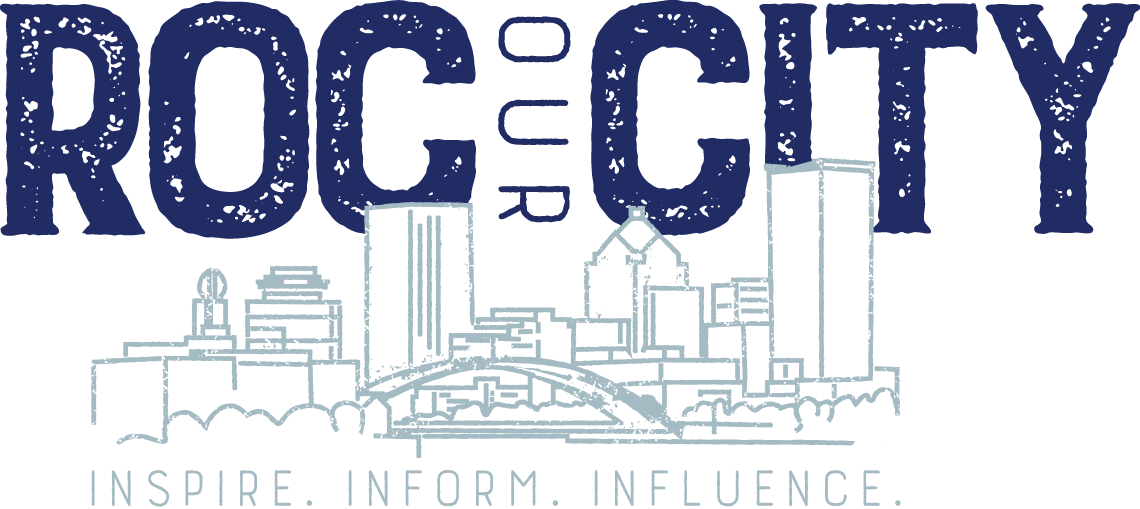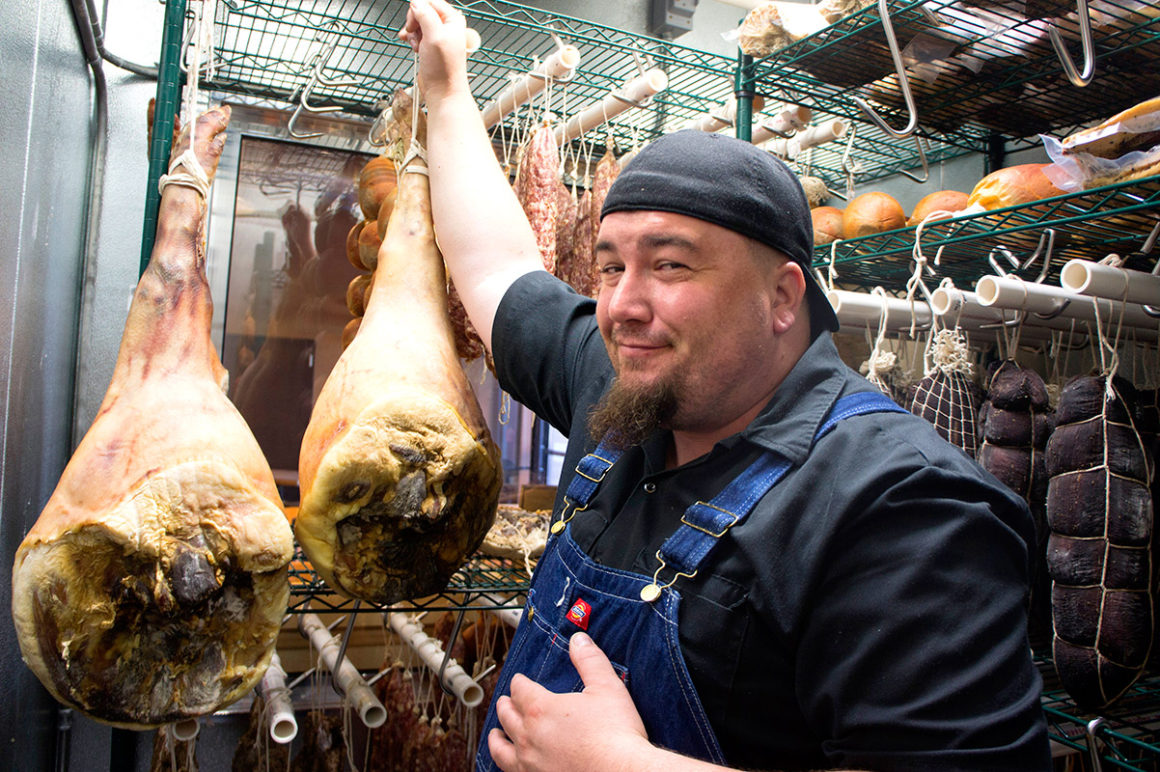Name: Kevin McCann
Profession: Butcher, Entrepreneur
Title: Owner, McCann’s Local Meats
Location: McCann’s Local Meats
Interviewer: John Loury Photography: Adriana Polizzi
1. What life events have had the greatest impact on who you are today?
At its very core, my life is very simple right now. There is professional Kevin and family Kevin. Professional Kevin wouldn’t be here without attending the Culinary Institute of America (CIA). Having originally graduated with a BA in theater from SUNY Brockport, going back to school was a big decision. I was 30 and needed to take my career seriously. The CIA embodies professionalism. It stresses an intellectual approach to culinary problems, drilling not only cooking technique but also the mental game planning that goes into efficient work. Very quickly I became enamored with protein fabrication and put myself in positions to continue developing my knowledge base and skill set in every class throughout the curriculum. That led to me applying for and being selected as a teacher’s assistant in the meat kitchen, working as the production manager for a major meat packer in Manhattan, apprenticing for one of the country’s most well-known craft butcher shops, opening a locally sourced butcher shop for a co-op of farmers in Syracuse, and finally being able to open my own butcher shop here in Rochester. Family Kevin also owes the CIA a debt of gratitude since that is where I met my wife, Yeonmo. My wife is an immensely talented cook and shares my passion for great ingredients. She is also the mother of our children. I think being parents has changed us both in innumerable fundamental ways. She is also my business partner. I had heard and witnessed all sorts of horror stories of couples who have not just worked together but who were partners in a business they owned. I’m proud to say that my wife and I have strengths where the other is weak and are not afraid to embrace that. My wife is the smart one. She makes sure we can continue to open the doors, turn on the lights, and have meat to cut. She is also our social media presence, taking the pictures and making posts to the various outlets that constitute our only marketing. This gives me the ability to focus on products and people (my wife is very shy). My marriage is better because we work together. We enjoy our time together and know it is a precious commodity most don’t have. Our son can come to work with us when needed and run around the dining room or practice his Taekwondo with our dishwasher, Troy. Truly a family business.
2. How do you define success? And what metrics do you use to confirm it?
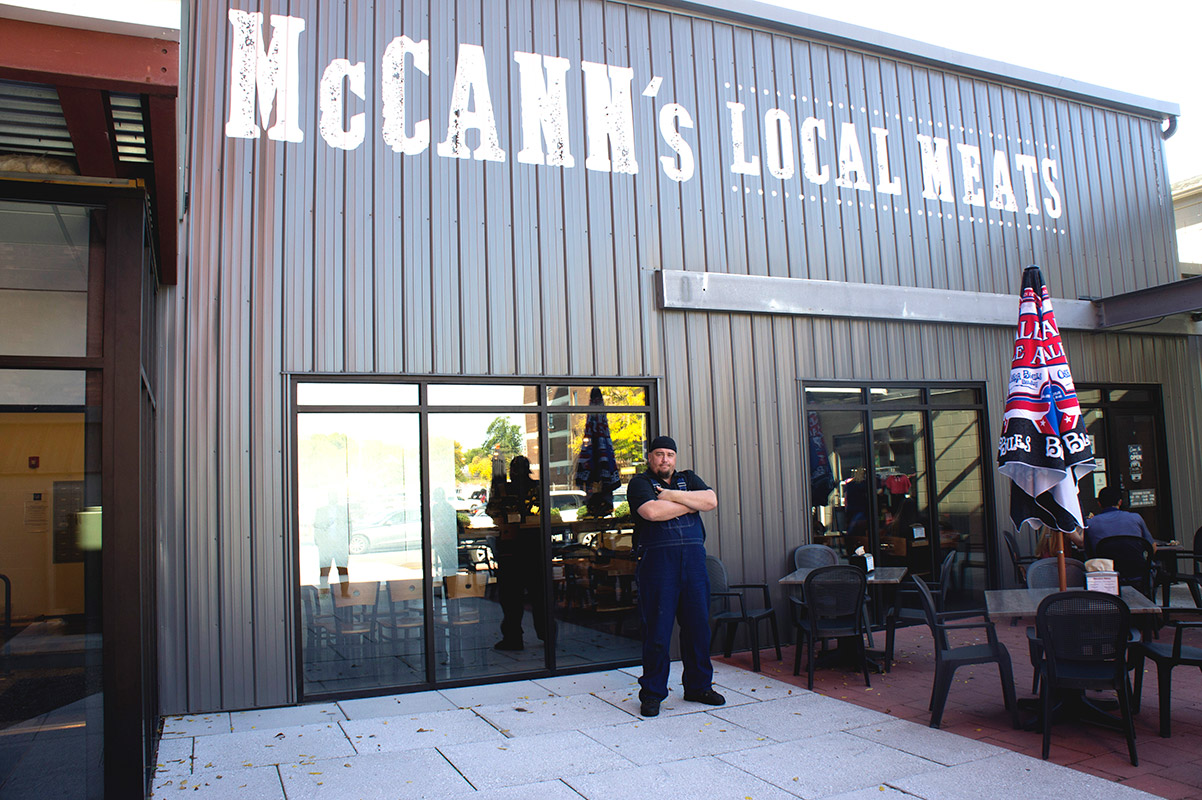 Success is a funny thing, right? There is the basic simple goal of any business, which is to make money, so you can simply check your bank account to measure that. As stated, we are a family business; therefore, goals like clothing and feeding our kids, college funds, and time to spend with each other are also huge. I am going to frame my answer in terms of my focus within our shop, though. I said above that my job is focused on products and people. People come in the form of three groups: customers, employees, and vendors. I need farmers—we buy animals from them and they are benefiting from continuing to raise great animals for us to process. I need a great staff to train, who will then use that training to execute their work up to standards. Finally, I need customers to enjoy their experience and become repeat customers, and tell their friends so that I can make them repeat customers. With regard to products, I need to make sure that every product we source is up to our standards at every delivery. I then need to make sure every sandwich, every French fry, every soup, every steak, chop, sausage, deli meat, etc. is executed with great technique and proper attention to detail. All of the recipes we use at the shop I have developed and been using for years now. I always tell my cooks, because I have been making them for so long, my food is like home. If the food they execute gives me the comfort of being home, it’s the best compliment I can give. To cut meat in my shop you have to prove yourself continuously throughout my apprenticeship program. If you can’t clean and organize, you can’t cut. If you can’t cut trim and produce five-pound bags of beef trim that are all 80/20 lean to fat, you can’t cut carcass and so on. The meat all needs to be presented in the case so that it is easy for the customer to find and in a way appealing to the eye. For the entire first year we were open I worked 100-hour workweeks on the norm. I moved like a madman to have my hands in everything to try and accomplish as much of all these things as possible. As we approach the year-and-a-half mark, I am working much less in the business at a table feverishly cutting meat. Instead I have trained a staff up to the point where I am working on the business more. I spend time with all my employees each day, furthering their training, tasting their food, listening to the way they interact with our customers. I played golf last Friday. Take that for a metric. The business is in a place where for a short time it can run itself pretty well without my micromanagement. Our customer base continues to grow, all while we maintain our current ones.
Success is a funny thing, right? There is the basic simple goal of any business, which is to make money, so you can simply check your bank account to measure that. As stated, we are a family business; therefore, goals like clothing and feeding our kids, college funds, and time to spend with each other are also huge. I am going to frame my answer in terms of my focus within our shop, though. I said above that my job is focused on products and people. People come in the form of three groups: customers, employees, and vendors. I need farmers—we buy animals from them and they are benefiting from continuing to raise great animals for us to process. I need a great staff to train, who will then use that training to execute their work up to standards. Finally, I need customers to enjoy their experience and become repeat customers, and tell their friends so that I can make them repeat customers. With regard to products, I need to make sure that every product we source is up to our standards at every delivery. I then need to make sure every sandwich, every French fry, every soup, every steak, chop, sausage, deli meat, etc. is executed with great technique and proper attention to detail. All of the recipes we use at the shop I have developed and been using for years now. I always tell my cooks, because I have been making them for so long, my food is like home. If the food they execute gives me the comfort of being home, it’s the best compliment I can give. To cut meat in my shop you have to prove yourself continuously throughout my apprenticeship program. If you can’t clean and organize, you can’t cut. If you can’t cut trim and produce five-pound bags of beef trim that are all 80/20 lean to fat, you can’t cut carcass and so on. The meat all needs to be presented in the case so that it is easy for the customer to find and in a way appealing to the eye. For the entire first year we were open I worked 100-hour workweeks on the norm. I moved like a madman to have my hands in everything to try and accomplish as much of all these things as possible. As we approach the year-and-a-half mark, I am working much less in the business at a table feverishly cutting meat. Instead I have trained a staff up to the point where I am working on the business more. I spend time with all my employees each day, furthering their training, tasting their food, listening to the way they interact with our customers. I played golf last Friday. Take that for a metric. The business is in a place where for a short time it can run itself pretty well without my micromanagement. Our customer base continues to grow, all while we maintain our current ones.
3. Where do you draw inspiration from?
Inspiration comes from two places. First off, I pay a lot of attention to the Internet and social media. There are a bunch of really talented “new school” butchers and purveyors of charcuterie out there. Their products are a constant fire under my ass to push myself and make great food. Secondly, I love talking to “old timers” who remind me of various cuts, sausages, deli meats, and other products that they used to see all the time and can’t find anymore. We fancy ourselves a throwback-type business as we try and bring back the idea of the neighborhood butcher, so I take special pleasure in old-school food.
4. What is it about your approach that is unique or separates you from others?
To be very clear, we are not inventing anything here. The wheel is fine just as it was. The amalgamation of what we do has no equal in this city, however. There are restaurants that source local meat and produce. There are shops that press and link great sausage and deli meats. There are places to find great imported charcuterie. Great sandwiches can be found as well. We do all of that here from hormone, antibiotic, and steroid free animals sourced from farms within 60 miles of Rochester. The variety of fresh cuts, grinds, deli meats, sausages, cured/smoked, charcuterie, sides, and all manner of prepared foods is staggering. We want our customers to feel like part of the process. That is why we have such an open floor plan. We want you to see that there is nothing up our sleeve, we aren’t hiding anything behind the closed door, and there is nothing but pride to take in all our practices. We look forward to the interaction and questions our guests have while they peruse our selection and watch our butchers cut. We love when the children come and sit down to watch while their parents shop. The experience we strive to provide is as important to us as the products.
5. How do you use information (data) to make decisions related to your profession or craft?
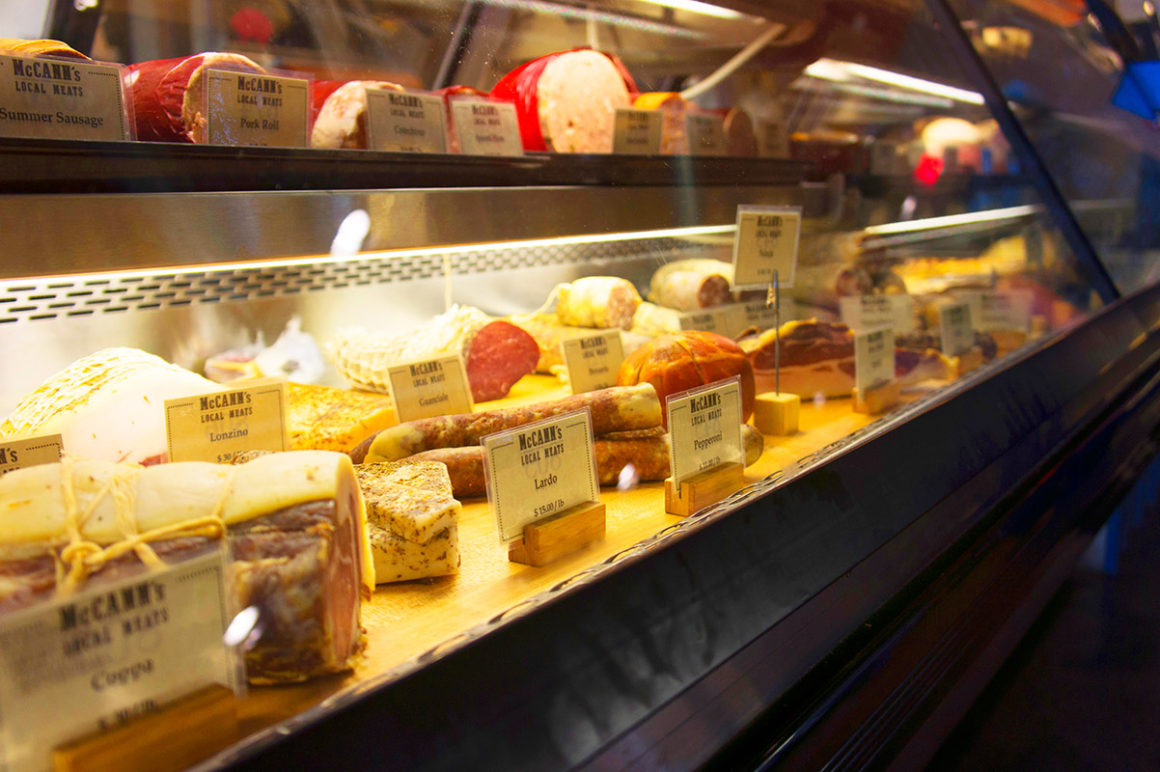 Yielding is at the core of the butcher department. Mother Nature can be a fickle partner, and human error can be a formidable opponent. Keeping records of our cutting efficiency and comparing those numbers from season to season, farm to farm, butcher to butcher is a way for us all to forecast what we will fabricate from the animals we receive and how proficient our staff is at their jobs. We are now over one year old as a company, which means we have year-over-year data to look at not only for animal yields, but also for sales data from our point of sale. We keep track of the amount of customer transaction, average transaction amount, sales mix of product category, and weather conditions for each day so that we can better plan for what lies ahead. Was a rainy day good for us in July? How many sandwiches did we sell in March versus October? Fridays are better for us in summer, whereas Saturdays rock out in fall and winter. Lastly, social media keeps track of how many people we engage with each post. What type of post drives people to comment or otherwise engage with our content? Is it pictures of our daily specials? We have seen a distinct reduction in our lunch sales when our daily posts about lunch come late. Is it our beer selection? Posting in the beer groups of this city has proven to be invaluable to drive that customer base into our store seeking out craft beer. Sometimes, though, it’s just us being us. A recent post showing our staff dancing and having fun while they worked garnered 600 likes.
Yielding is at the core of the butcher department. Mother Nature can be a fickle partner, and human error can be a formidable opponent. Keeping records of our cutting efficiency and comparing those numbers from season to season, farm to farm, butcher to butcher is a way for us all to forecast what we will fabricate from the animals we receive and how proficient our staff is at their jobs. We are now over one year old as a company, which means we have year-over-year data to look at not only for animal yields, but also for sales data from our point of sale. We keep track of the amount of customer transaction, average transaction amount, sales mix of product category, and weather conditions for each day so that we can better plan for what lies ahead. Was a rainy day good for us in July? How many sandwiches did we sell in March versus October? Fridays are better for us in summer, whereas Saturdays rock out in fall and winter. Lastly, social media keeps track of how many people we engage with each post. What type of post drives people to comment or otherwise engage with our content? Is it pictures of our daily specials? We have seen a distinct reduction in our lunch sales when our daily posts about lunch come late. Is it our beer selection? Posting in the beer groups of this city has proven to be invaluable to drive that customer base into our store seeking out craft beer. Sometimes, though, it’s just us being us. A recent post showing our staff dancing and having fun while they worked garnered 600 likes.
6. What does being a Rochesterian mean to you?*
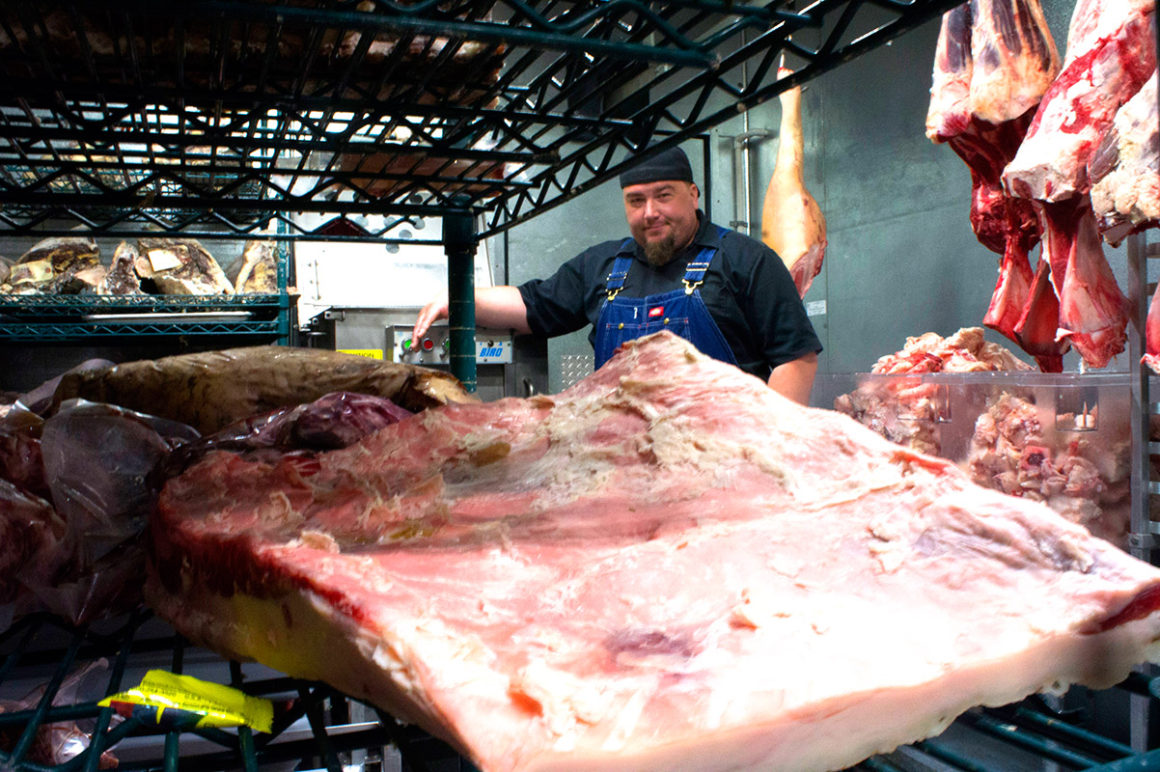 Being a Rochestarian is being a part of a proud community. This city has more going for it than a LOT of cities much larger than ours. Our scene in the arts has been strong for years because of the influence of Kodak. That influence has made residents of this city demand a higher quality from many other facets of our culture. One of those is the food and drink scene. Independently owned restaurants, breweries, and distilleries exist and thrive in the town because our citizens enjoy and support them. I’m from Syracuse originally. That city has a nationally recognized collegiate sports program. We see almost as much Rochester-themed apparel in this town as you do Orange gear there.
Being a Rochestarian is being a part of a proud community. This city has more going for it than a LOT of cities much larger than ours. Our scene in the arts has been strong for years because of the influence of Kodak. That influence has made residents of this city demand a higher quality from many other facets of our culture. One of those is the food and drink scene. Independently owned restaurants, breweries, and distilleries exist and thrive in the town because our citizens enjoy and support them. I’m from Syracuse originally. That city has a nationally recognized collegiate sports program. We see almost as much Rochester-themed apparel in this town as you do Orange gear there.
The thing that always strikes me about the city is just the pride that the residents of the city take in this area. It’s funny, coming from Syracuse, you’ve got the big, well-known sports team, and everybody is always walking around in orange and blue with the big S on all their clothing. You come to Rochester and there are really great colleges here but people are actually wearing Rochester gear, not necessarily branding of anything else, just Rochester. All of these small garment companies that are coming up with new ways to utilize the Rochester brand, it’s really incredible to see people buy into that, first of all. That, to me, is just another way that the pride in the city takes shape. For me, being in a small retail business, it’s amazing to look across the board and see the way that people are choosing to spend their money—which is with these small, independently owned businesses. You know, obviously coming from the food business and visiting cities bigger than us, you see the way chain restaurants rule the world. I think per capita this city has more of these exciting, independently owned restaurants going on. You know, craft cocktails, craft beer, excellent food with chefs who are utilizing really sound techniques with exciting ingredients, and they’re able to do all that because people in the city are willing to spend their dollars to try that and support that and let the creativity continue to flow. I mean, that’s what Rochester is to me. Buy local, spend local, and keep the money local, that’s what my business is all about. That multiplier effect that you’ll hear people talk about in regards to your money and how you spend it, I really feel that we’re doing as much as we can to put that into effect.
7. What are the greatest challenges Rochester faces in terms of future growth and success?*
Our city schools scare me the most. We have some amazing schools in surrounding suburbs, but in neighborhoods like the South Wedge, where our business is, families are leaving. Young professionals move into an area like this, but once they have kids who approach school age they are leaving the city limits and moving to the ’burbs. Further, we need to give a chance to the kids for whom leaving is not an option. With all of the racially driven tensions this country and this city have seen over the recent months and years, we have to rely on education as a major tool of reform. I would hope that a better system of education provides more people opportunity for better-paying jobs and the chance to alter the trajectory of their family and community.
To me, it’s all about education. One of the funny things that has happened to us even the first year that we have been open is we’ve had some really great customers live right here in this neighborhood, and because their children have gotten to the age where they’re going to start entering into the school system, they’ve all booked it and headed to the suburbs. Because while this area as a whole has some really excellent school systems outside of the city, this city is known for having some of the worst schools in the nation. So in regards to all of the racially generated tensions that exist in this city, in this country, and everywhere right now, to me one of the tools that need to be used in order to try and help improve the lives of communities and families has to be a focus on education. It has to be a focus on getting those people the opportunities to better themselves, and better jobs, and everything that comes along with, you know, that educational process.
From a business standpoint?
Rochester used to have Kodak, Xerox, and these larger corporations, and one of those things that you’ll sort of see across the United States, we’re not in that decaying steel belt of, you know, Detroit, Cleveland, Buffalo, Pittsburgh, nothing like that—there is this general lack of producing tangible goods. So many cities have become almost 100 percent service based—you know, the idea of some sort of production, tangible goods that are produced within a city that are sold locally or nationwide, that gives multiple tiers of multiple families in their economic positions jobs that are obviously going to provide opportunities as well.
8. If someone were to film a movie about your life, what actor/actress would you cast to play you?
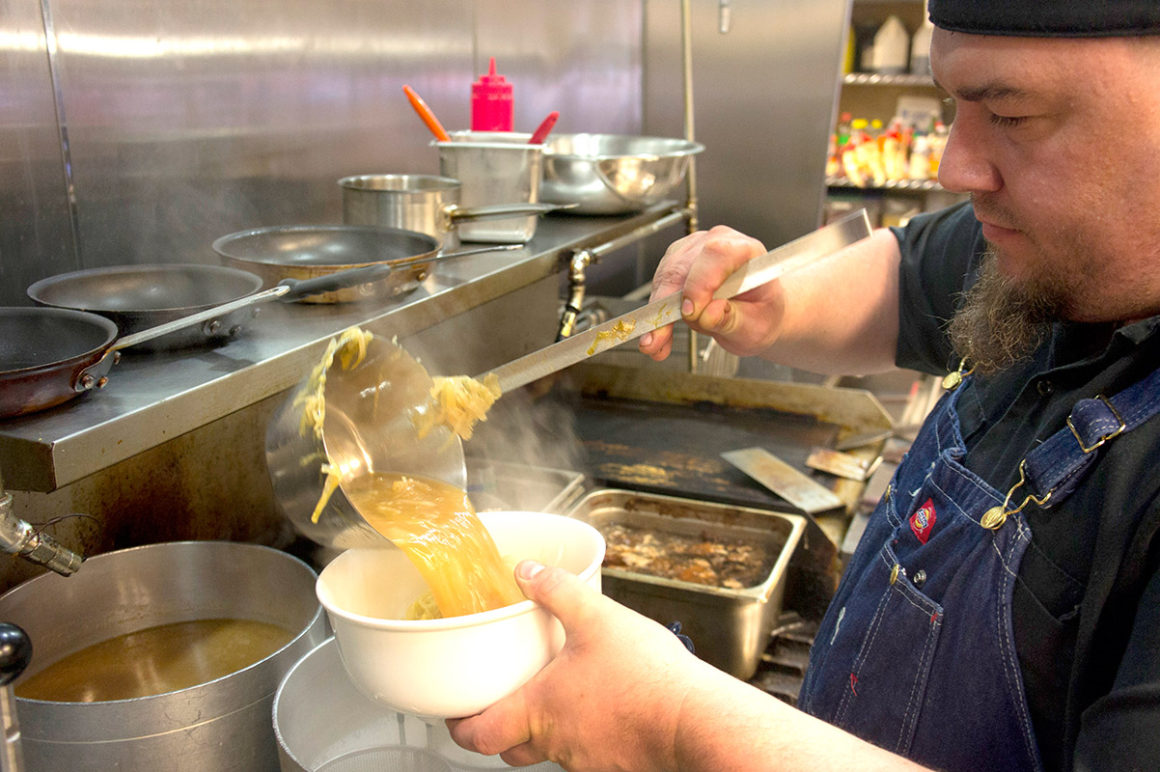 This one is tough. The two actors I would choose are both older than me and one is now dead. I would love for a younger Bill Murray to take the job. Dude is funny, but has amazing depth to his acting. He is just a straight guilty pleasure. Look at the way he played Hunter S. Thompson when he was younger. That is the age range I look at and I’m like, that’s awesome Bill Murray right there. He’s obviously flexed a lot more serious acting in his older age, but I’m not an entirely serious guy, so I appreciate some of that humor. So many movie lines I quote are his … it would be fun to quote me through him, if that makes sense.
This one is tough. The two actors I would choose are both older than me and one is now dead. I would love for a younger Bill Murray to take the job. Dude is funny, but has amazing depth to his acting. He is just a straight guilty pleasure. Look at the way he played Hunter S. Thompson when he was younger. That is the age range I look at and I’m like, that’s awesome Bill Murray right there. He’s obviously flexed a lot more serious acting in his older age, but I’m not an entirely serious guy, so I appreciate some of that humor. So many movie lines I quote are his … it would be fun to quote me through him, if that makes sense.
The other actor is Philip Seymour Hoffman. We shared an acting coach in our early careers named Barbara Biddy, who ran the Shipping Dock Theater here in Rochester. He kept in touch with her all the way up until his death. Man was brilliant, too bad his demons got the better of him. He was a guy I always looked at in the industry as not just a local success story but just a master of his craft. He and I played somewhat similar-style roles when we were cast in things. I was never necessarily a leading role, I was usually this character role where you’re a supporting cast member but you end up in a lot of ways turning more heads with what you did with that than you will as a leading actor. I always appreciated his ability to take small roles and make big things from them.
Neither one of them is necessarily a pretty boy, nor am I. I quote Bill Murray so often in everyday life, I would love to see an “Inception” style movie where I am quoting myself through Bill Murray, who’s playing me—that would be kind of fun. His somewhat goofy nature, where he’s funny but somewhat stoic with his delivery, is key. With Phil you know he also had an interesting humor about him as well. A lot of times in movies there were these moments of sly humor where it seemed to have come out of his mouth right, and then there were moments in certain characters he played where his comedy sort of came from this arrogance that he was able to portray as well. I get accused a lot of being arrogant and I take that as somewhat of a compliment. I think arrogant is somewhat this negative term, where your confidence has gone too far. I mean, I consider myself a confident person. That’s how I approach what I do. I’m not afraid to tell you I think I’m pretty good at what I do. That’s not me being arrogant, that’s sort of a statement of fact more than anything else.
9. Do you have any nominations of individuals who ROC Our City?
- Markette Pierce, host of In Mah Mouf Podcast
I did her podcast eight months ago, and that whole WAYO 104.3 FM crew, they’ve got a cool vibe to what they’re doing and I think her appreciation is similar to you wanting to celebrate what is going on here. I put Marquette’s name down as someone who does an excellent job—a smart, talented female, out there really getting it done. - Julie Goin, Real Estate Sales Associate at Re/Max Plus
I put down Julie’s name because she is a real estate agent who helped us find our house and the location for this business. She and I kind of had this similar path to getting to where we are now, she was at SUNY Brockport when I was studying theater, she was there for dance, and she has paralleled this experience, being a mom and businesswoman and welding those things together—she’s very active in healthy, local eating and so I think she’s a very interesting person to talk to, not just being a business owner, but also a born-and-bred Rochesterian. - Jay Nichols, Stoneyard Brewing Company
He and I have had a lot of collaborative efforts and done work together. I’m especially partial to the way that that company has blown up in the last six months and all of the work that company still has in the works. Their slogan is “we don’t do small.” They’ve still got gigantic things coming up with their brewery opening and all of the success they’ve seen in Webster and everything else, so he’s another great one.
What is your favorite cut of meat?
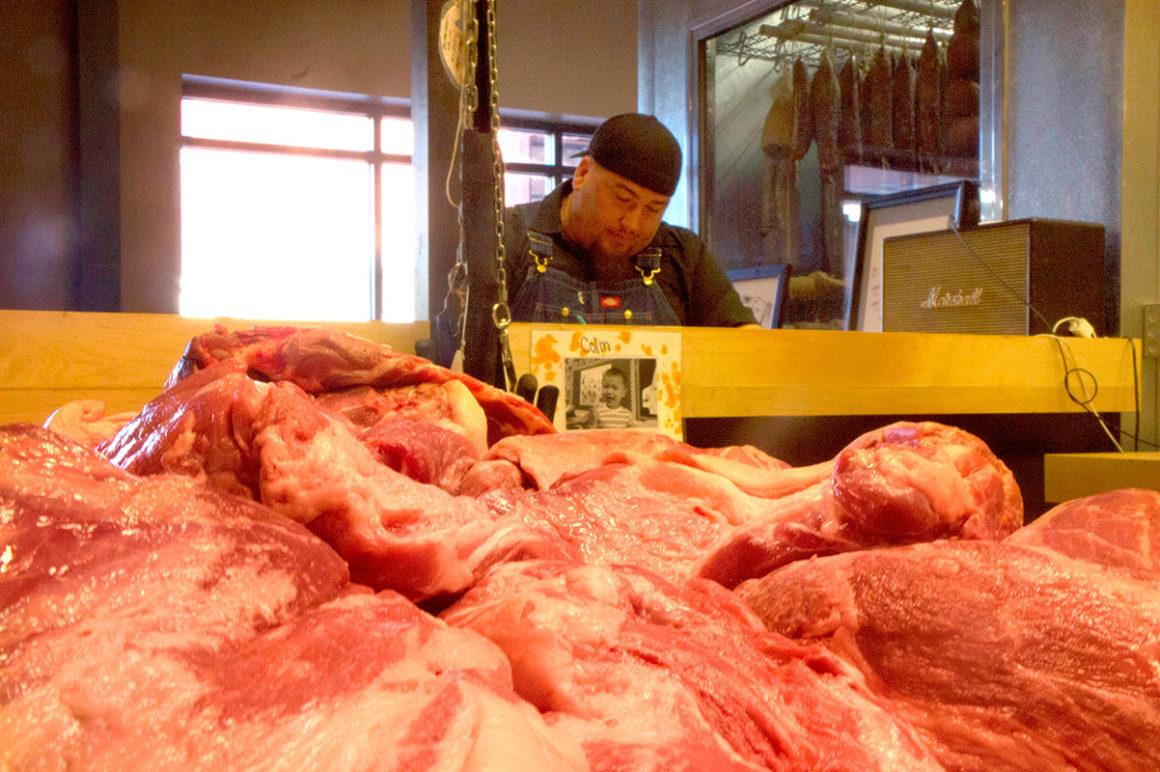 It’s funny, it’s one of those things I’ve had to instill in my butchers a little bit. One of my apprentices will cut something and immediately think it looks sexy, really well marbled. So he wants it—wraps it up, puts it in a drawer, and takes it home. The fact of the matter is that the amount of times I eat steak during the week is almost zero. I’m typically eating the stuff that’s left, stuff that’s still delicious but perhaps is oxidized to the point where you can’t put it in the case to sell. It’s lost some eye appeal but from a taste perspective it’s still great. I had a customer come in and ask for duck the other day, they said, “Do you ever get duck livers? If so, when do you get them?” I said, “You can get them if I don’t eat them.” Cause as soon as they’re here I typically buy them and eat them. Don’t get me wrong, I love a steak, and if I’m going to eat a steak … for example, my in-laws were in from South Korea and my father-in-law said, “I want to eat real American beef.” I cooked him a dry-aged top sirloin. People come in, they go straight to rib eye, they go straight to a strip, or straight to tenderloin. The top sirloin is sort of the redheaded stepchild of higher-end meat, and to me it’s the best.
It’s funny, it’s one of those things I’ve had to instill in my butchers a little bit. One of my apprentices will cut something and immediately think it looks sexy, really well marbled. So he wants it—wraps it up, puts it in a drawer, and takes it home. The fact of the matter is that the amount of times I eat steak during the week is almost zero. I’m typically eating the stuff that’s left, stuff that’s still delicious but perhaps is oxidized to the point where you can’t put it in the case to sell. It’s lost some eye appeal but from a taste perspective it’s still great. I had a customer come in and ask for duck the other day, they said, “Do you ever get duck livers? If so, when do you get them?” I said, “You can get them if I don’t eat them.” Cause as soon as they’re here I typically buy them and eat them. Don’t get me wrong, I love a steak, and if I’m going to eat a steak … for example, my in-laws were in from South Korea and my father-in-law said, “I want to eat real American beef.” I cooked him a dry-aged top sirloin. People come in, they go straight to rib eye, they go straight to a strip, or straight to tenderloin. The top sirloin is sort of the redheaded stepchild of higher-end meat, and to me it’s the best.
What are you cutting first on a plate of charcuterie?
One of the meats that got me into wanting to learn how to cure and dry both whole muscles and salami is speck, a northern Italian-style ham. After it has been cured with a little juniper berry, its then cold smoked before dried. Those two flavor elements—that hint of smoke and the background notes of pine—are the best. You get fat cap like you would a prosciutto but the meat itself has a little kick of those two flavors.
Parting thoughts
Don’t be afraid to sing along with the silly butchers that sing in the shop, don’t be afraid to come in and just get your lunch or dinner. We love it when customers come in and have a great time with us.
